You can stand out as an attractive candidate for healthcare management jobs by building expertise, mastering digital tools, and focusing on your unique strengths. In Malaysia, employers value specialized healthcare management skills and digital literacy. Candidates with these skills often receive salary increases of 20–30% when changing roles. When you network, pursue advanced training, and show a commitment to patient-centered care, you become an attractive candidate in the healthcare industry. The right approach helps you secure rewarding healthcare management opportunities.
To excel in healthcare management, you must first understand your unique strengths. Start by evaluating your internal attributes, such as self-efficacy and personality, as well as your interpersonal assets, like social support. This self-assessment helps you identify areas where you can lead and contribute effectively. Malaysia’s National Policy for Quality in Healthcare highlights workforce competency and stakeholder engagement as top priorities. When you recognize your strengths, you align yourself with these national goals and improve your chances of landing job opportunities in healthcare management.
Experienced healthcare management professionals who leverage diverse skill sets often manage challenges more effectively. A strengths-based approach empowers you to grow, improve self-management, and enhance your performance. By focusing on your abilities, you set yourself apart in a competitive field. Remember to research and prepare by using validated tools or feedback from mentors to gain a clear picture of your competencies.
Tip: Cultivating your strengths not only boosts your confidence but also leads to better health outcomes and improved leadership in healthcare management.
You must research and prepare to match your skills with the current demands in Malaysia’s healthcare sector. The market is evolving rapidly, with digital transformation and new technologies shaping the landscape. Recent studies reveal several key trends:
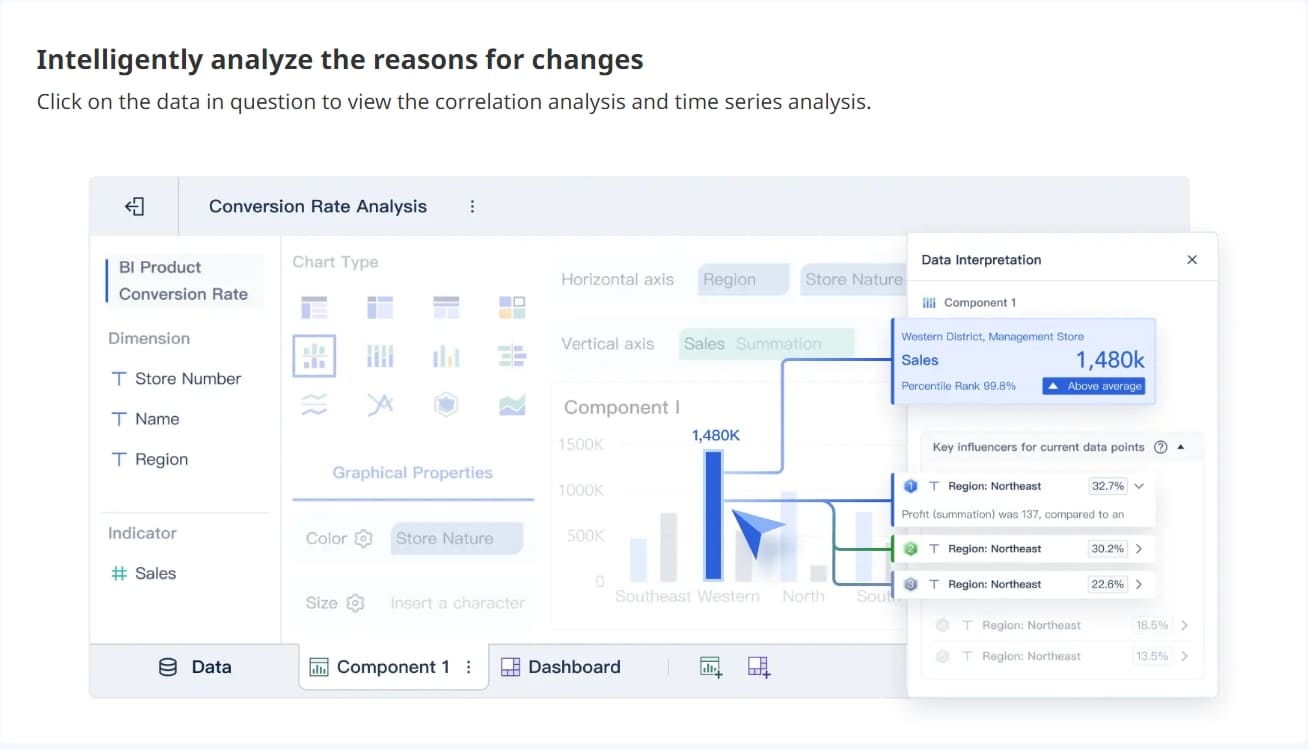
To help you align your competencies with market needs, consider the following table:
| Market Segment | 2024 Market Size (USD Billion) | Forecast CAGR (%) | 2033 Market Size (USD Billion) | Key Drivers and Competency Needs |
|---|---|---|---|---|
| Malaysia Medical Measurement System | 22.3 | 5.4 | 34.5 | AI, IoT, data analytics, interoperability skills |
| Malaysia Patient Portal Market | 3.5 | 15.2 | 12.0 | Digital health tech, AI, data security, patient-centric care |
You should research and prepare by identifying which market segments match your strengths and interests. This targeted approach increases your chances of success in healthcare management and ensures you meet the evolving needs of the industry.
You need strong leadership and communication skills to excel in healthcare management. These skills help you lead teams, drive strategic initiatives, and improve performance across your organization. In Malaysia, healthcare management professionals who invest in leadership training see a direct impact on their ability to manage change and achieve better outcomes. For example, when leaders receive IT and software training, they become more competent in digital health and informatics. This allows them to support staff, allocate resources, and foster a culture of digital competence.
Effective healthcare leadership goes beyond giving orders. You must inspire your team, encourage collaboration, and promote responsible digital behavior. Leaders who focus on visionary and digital skills create an environment where knowledge sharing thrives. This approach leads to higher performance and better patient outcomes. Communication also plays a vital role. You should practice active listening, provide clear feedback, and adapt your message for different audiences. Strong interpersonal skills help you build trust and resolve conflicts, which boosts team performance.
Tip: Regularly seek feedback from your team and peers. This helps you identify areas for improvement and strengthens your leadership presence.
Digital skills are now essential in healthcare management. You must understand how to use data for strategic decision-making and performance improvement. Tools like FineReport and FineBI make it easier to analyze complex healthcare data, generate reports, and visualize trends. These platforms allow you to track key metrics, monitor outcomes, and support strategic planning.
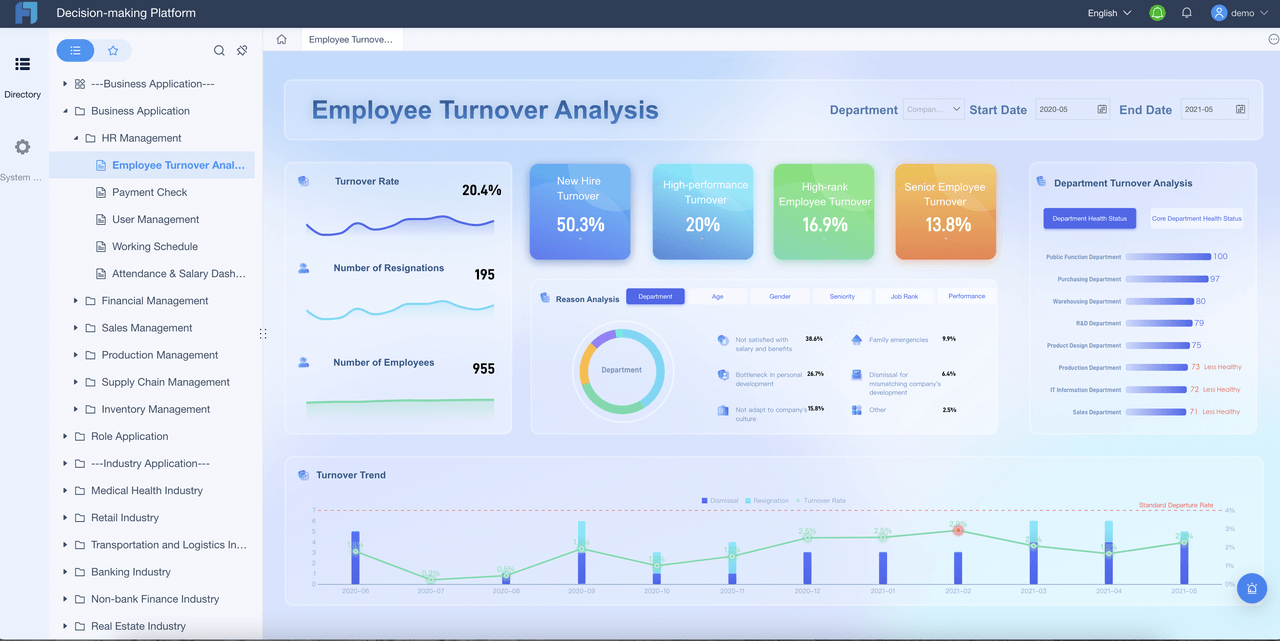
FineReport helps you create detailed dashboards and reports without advanced coding. You can integrate data from multiple sources, which improves accuracy and saves time. FineBI offers self-service analytics, so you can explore data, identify patterns, and share insights with your team. By mastering these tools, you enhance your ability to lead teams and drive performance. Malaysian healthcare organizations increasingly seek managers who can leverage digital tools for strategic advantage. Training in digital health technologies, such as AI and big data, prepares you for future leadership roles and ensures you deliver measurable impact.
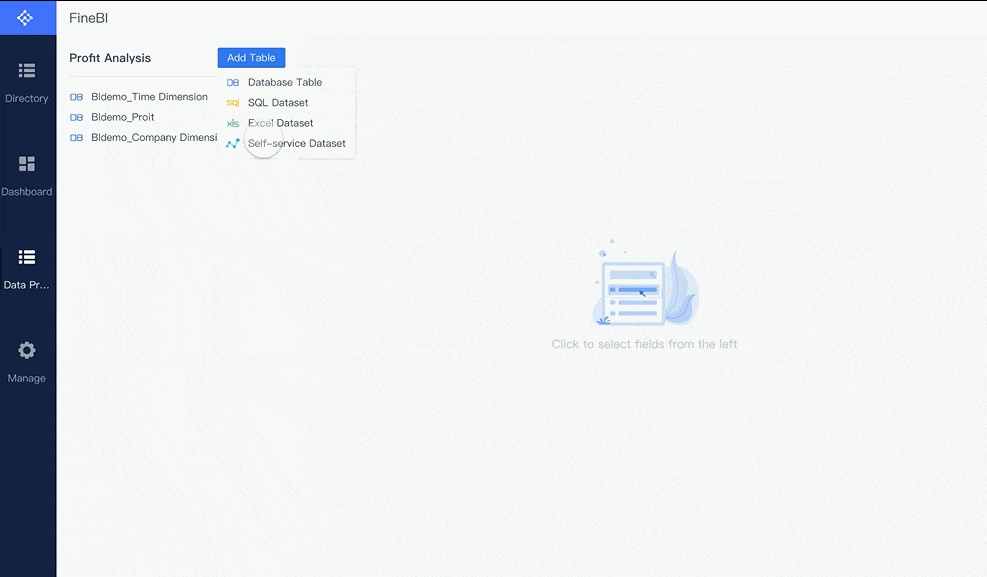
Note: Enroll in digital health courses or workshops to stay updated on the latest technologies and best practices in healthcare management.
You can boost your career in healthcare management by pursuing higher education. Many professionals in Malaysia choose to earn a diploma in healthcare management to gain specialized knowledge and practical skills. This qualification prepares you for leadership roles and helps you understand the complexities of the healthcare system. Alumni from postgraduate programs, such as the diploma in healthcare management, often report significant career growth. For example, many see a 40% increase in salary within two years of graduation. These programs focus on developing your managerial and leadership abilities, making you a strong candidate for advanced positions.
A global study found that graduates in healthcare sciences experienced a sharp drop in unemployment and a rise in teaching and research roles after completing their degrees. Nearly 90% of alumni agreed that their degree helped them reach their professional goals. This trend holds true in Malaysia, where employers value advanced qualifications. By earning a diploma in healthcare management, you show your commitment to professional growth and position yourself for success in healthcare management.
Tip: Choose a program that offers practical experience and industry connections. This will help you apply your knowledge and build a strong professional network.
Certifications play a vital role in advancing your healthcare management career. You can gain a competitive edge by earning recognized certifications that validate your expertise and commitment to high standards. In Malaysia, employers prefer candidates who hold certifications, especially when hiring or promoting staff.
You can also benefit from new certifications in digital health and management, which are becoming more accessible through online exams. These programs help you stay updated with industry trends and improve your job performance. By investing in certifications, you demonstrate your dedication to lifelong learning and professional excellence in healthcare management.
You can expand your job opportunities in healthcare management by joining industry groups and associations. These organizations help you network and build relationships with peers, mentors, and leaders in the field. When you participate in groups such as the Malaysian Society for Quality in Health or the Malaysian Medical Association, you gain access to exclusive events, training, and job boards. These platforms allow you to share knowledge, discuss trends, and stay updated on new career opportunities.
Building strong relationships within these groups increases your visibility and credibility. You can connect with experienced healthcare management professionals who offer guidance and support. Many members find that active participation leads to referrals and recommendations for job opportunities in healthcare management. By attending meetings and volunteering for committees, you demonstrate your commitment and build lasting relationships that support your career growth.
Tip: Reach out to group members after events to continue the conversation and strengthen your network.
You should attend industry events, conferences, and seminars to network and build relationships with professionals across Malaysia. These gatherings provide a space to exchange ideas, learn about the latest developments, and discover new career opportunities. The Malaysian healthcare sector is growing, with increased hiring in biotechnology, telemedicine, and mental health services. The digital economy, including AI and remote work, creates more job opportunities in healthcare management.
Online platforms also play a crucial role. Many professionals use LinkedIn, health-related mobile apps, and digital forums to connect and share insights. In Selangor, about 20% of people use health-related apps, with younger and more educated individuals leading adoption. These platforms help you network and build relationships beyond traditional boundaries. You can join online groups, participate in discussions, and follow organizations to stay informed about career opportunities.
By leveraging both in-person and online networks, you increase your access to job opportunities in healthcare management and build relationships that last throughout your career.
You want to stand out as an attractive candidate for healthcare management jobs in Malaysia. Start by customizing your resume and cover letter for each application. Recruiters expect you to show why you are the right fit for the role. When you address the hiring manager by name, you increase your response rate. Highlight your most relevant skills and certifications to show your expertise. Share a compelling story that demonstrates your passion for healthcare management jobs. Mention any referrals early in your cover letter to boost your chances.
Use clear language and focus on your achievements. Show how your interpersonal skills and certifications make you an attractive candidate. End your cover letter with a confident call to action, inviting the employer to discuss your fit for the healthcare management job.
Tip: Proofread your documents to avoid errors and ensure your application looks professional.

You need to prepare well for interviews to secure healthcare management jobs. Research the organization and understand its values. Practice answering common interview questions about leadership, teamwork, and problem-solving. Prepare examples that show your experience with certifications and digital tools. Use the STAR method (Situation, Task, Action, Result) to structure your answers.
Dress professionally and arrive early. Bring copies of your resume and a list of questions for the interviewer. Show enthusiasm for the role and highlight what makes you an attractive candidate. Listen carefully and respond with confidence. After the interview, send a thank-you note to express your appreciation and reinforce your interest.
Note: Practicing with a friend or mentor can help you improve your communication and boost your confidence.
You must stay updated with the latest trends in the growing healthcare sector to maintain your competitive edge. The healthcare management landscape in Malaysia evolves rapidly. You see new technologies, changing patient expectations, and strategic shifts in care delivery. Staying current helps you deliver high patient satisfaction and drive better outcomes.
Hospitals now use predictive analytics to manage medicine consumption. This approach reduces waste and ensures patients receive the right medication at the right time. The Malaysian healthcare predictive analytics market is set to grow from USD 5.5 billion in 2024 to USD 16.2 billion by 2033. This growth comes from technological disruption and evolving patient needs. You can use tools like FineReport and FineBI to analyze medicine usage patterns, track inventory, and support strategic decisions. These tools help you improve patient safety and satisfaction while optimizing performance.
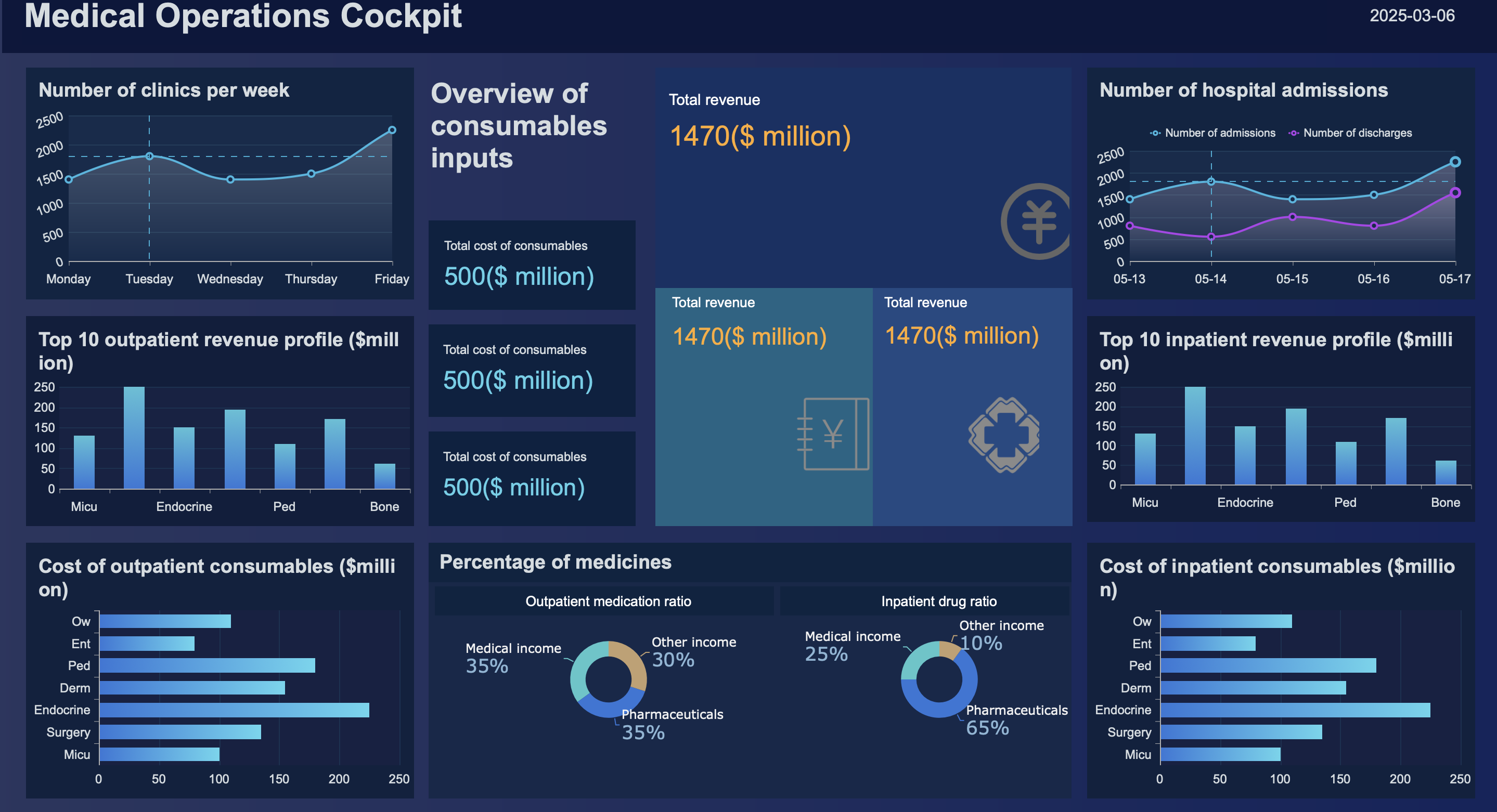
A hospital operation dashboard gives you real-time insights into patient flow, staff allocation, and resource utilization. Many Malaysian hospitals use AI-driven dashboards to predict patient admission rates and schedule staff efficiently. You can monitor key metrics such as patient wait times, readmission rates, and overall performance. FineReport and FineBI allow you to create custom dashboards that support strategic planning and high patient satisfaction. By leveraging these digital tools, you ensure quality healthcare and positive patient outcomes.
Ethics and adaptability are essential in healthcare management. You must show a strong commitment to patient care and uphold the highest ethical standards. The healthcare industry faces constant change, so you need to adapt quickly. Continuous learning models, such as those supported by the Malaysian National Cancer Council and local universities, help you stay ahead. These models encourage you to learn about new technologies and best practices. By embracing change and maintaining ethical integrity, you build trust and deliver high patient satisfaction.
Tip: Regularly attend workshops and training sessions to keep your skills sharp and stay informed about industry changes.
Hands-on experience in clinical or operational roles strengthens your healthcare management skills. You learn how to improve patient outcomes and drive performance. Many organizations in Malaysia have achieved significant impact through process optimization and automation. For example, Manforce saved 32 manual work hours, and UMLand saved 48 hours by streamlining healthcare processes. These improvements lead to better patient satisfaction and operational efficiency.
| Metric Name | Description | Importance in Clinical/Operational Experience |
|---|---|---|
| Error Rate | Measures the percentage of treatment errors made by staff, categorized by medication, dosage, etc. | Indicates staff effectiveness and quality of care provided. |
| Training per Department | Tracks the amount of training received by staff in each department. | Ensures staff competency and reduces errors in patient care. |
| Cancellation Rate | Percentage of missed patient appointments. | Reflects operational efficiency and patient engagement. |
| Readmission Rates | Percentage of patients readmitted for the same condition. | Indicates quality of care and effectiveness of treatment. |
| Patient Safety | Measures protocols and outcomes related to preventing infections and complications. | Critical for maintaining high standards of patient care and safety. |
You should track these metrics to measure your performance and demonstrate your value in healthcare management. Gaining experience in these areas prepares you for strategic roles and helps you make a positive impact on patient care.
You can achieve career growth by focusing on specialization, building new skills, and expanding your network. Stay proactive and adapt to changes in the industry. Use digital tools like FineReport and FineBI to improve patient outcomes and drive satisfaction. Advanced roles reward you for your expertise and leadership. The table below shows how strategic preparation leads to higher satisfaction and influence in senior positions.
| VP-Level Position | Average Salary (USD) | Key Impact Area |
|---|---|---|
| VP of Strategy | $193,000 | Drives growth, supports quality patient care |
| VP of Communications | $183,000 | Enhances engagement and patient satisfaction |
| VP of Finance | $176,000 | Ensures quality care through fiscal leadership |
| VP of Marketing | $156,000 | Informs and educates patients |
| VP of Provider Network Strategy | $157,000 | Improves care accessibility |
| VP of Operations | $153,000 | Boosts efficiency and patient satisfaction |
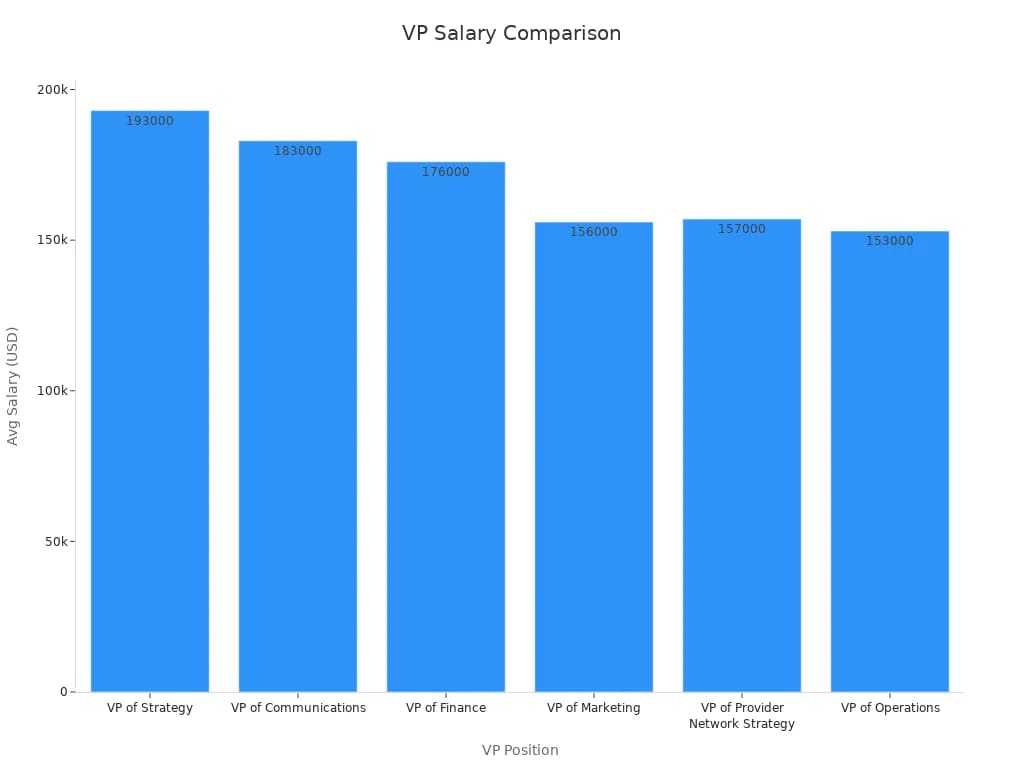
Stay committed to learning and patient satisfaction. Your dedication shapes the future of healthcare and ensures lasting success.
Click the banner below to experience FineReport and FineBI for free and empower your enterprise to convert data into productivity!
Location Data Management: Key Techniques and Tools

The Author
Lewis
Senior Data Analyst at FanRuan
Related Articles
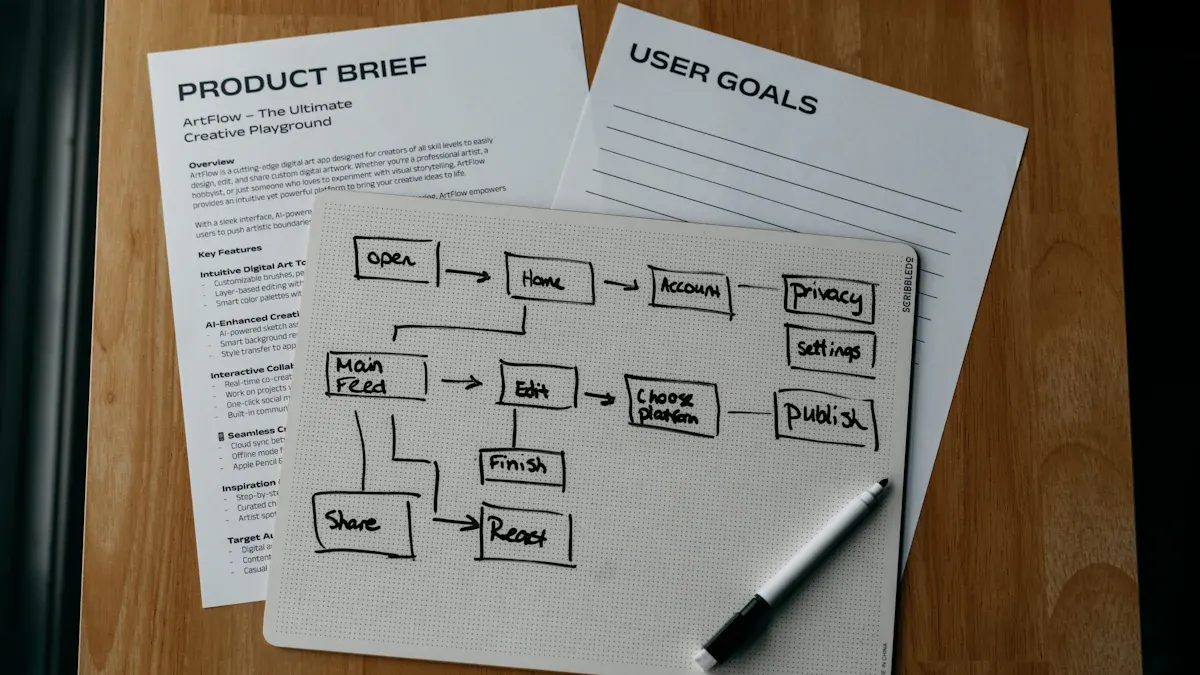
What is a data management platform in 2025
A data management platform in 2025 centralizes, organizes, and activates business data, enabling smarter decisions and real-time insights across industries.
Howard
Dec 22, 2025

Top 10 Database Management Tools for 2025
See the top 10 database management tools for 2025, comparing features, security, and scalability to help you choose the right solution for your business.
Howard
Dec 17, 2025

Best Data Lake Vendors For Enterprise Needs
Compare top data lake vendors for enterprise needs. See which platforms offer the best scalability, integration, and security for your business.
Howard
Dec 07, 2025